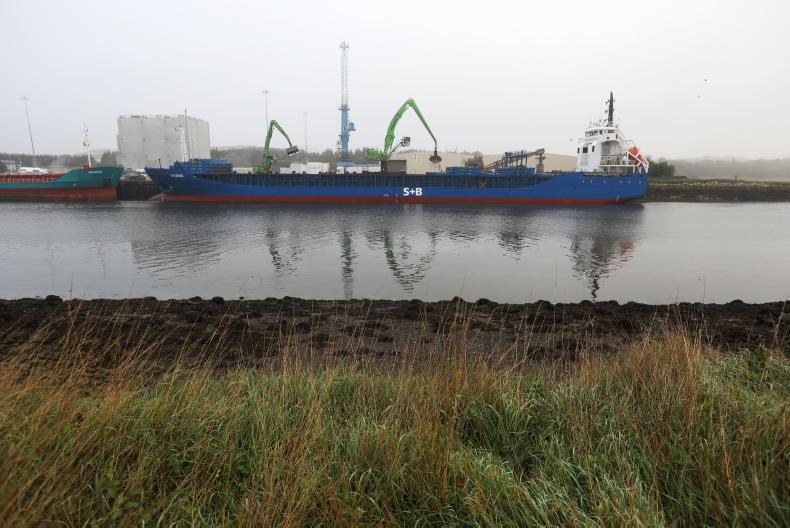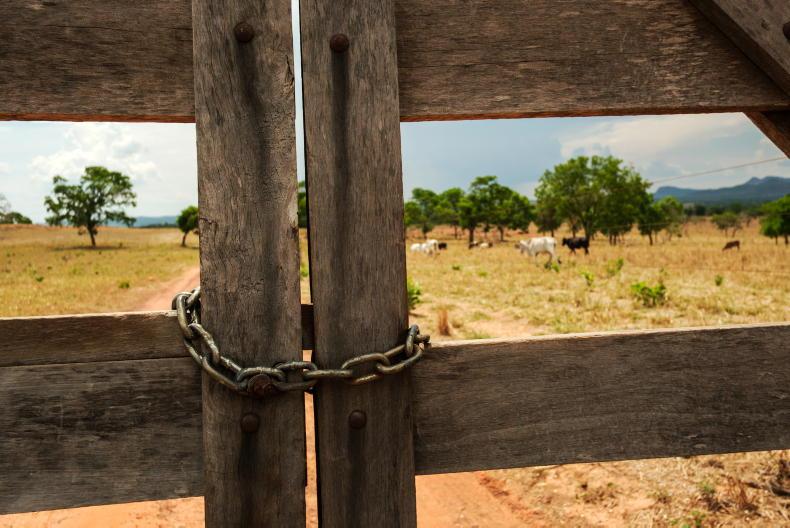A shipment of 3,600t of horticultural peat arrived in Drogheda on Saturday morning following an effective ban on peat harvesting in the country.
The convoy of over 200 trucks collected the freight of horticultural peat which had travelled over from Latvia.
This is the first time Ireland has had to import horticultural peat, but many shipments from the Baltic states and other EU countries are expected over the coming weeks and months to supply the horticultural sector.
Irish ban
Horticultural peat harvesting has ceased in Ireland since September 2019, following a High Court ruling. The harvesting of horticultural peat from Irish bogs greater than 30 hectares now involves gaining permission through a complex four stage licensing and planning system.
All other countries across the EU operate within a single system.
The imported peat comes at higher cost, both financially and environmentally, but it is necessary to supplement the reserve supplies of Irish peat, which have now been almost exhausted.
The depleted supplies of Irish peat and the ban on harvesting is placing 17,000 jobs across Ireland’s horticultural sector at risk.
Increased costs
According to representative group Growing Media Ireland (GMI), the cost of importing horticultural peat could be up to three times the cost of sourcing peat in Ireland.
GMI is calling on the Government to secure the resumption of peat production in Ireland immediately to avoid a sector-wide financial and environmental crisis.
It is seeking a fair and workable licensing system that will provide for the phasing out of horticultural peat harvesting over a transition period to 2030, allowing alternatives to be developed but ensuring that there is a secure supply.
Commenting, John Neenan, chair of GMI, said: “The nuclear scenario for our sector that we warned the Government of last year has been realised.
“We estimate at least two shipments the size of what arrived in Ireland this week will be required each month to meet Ireland’s needs, travelling thousands of kilometres and creating a huge carbon footprint.
“The message we are sending out is that Ireland is quite happy to import peat and cause greater environmental damage than sourcing it at home with a workable licensing system that will provide for a transition to alternatives over the coming years.
“It is a crazy scenario we are facing, given that horticultural peat is readily available and can be harvested in a sustainable, environmentally friendly manner in this country,” he insisted.
“Countries in the EU have taken such a practical approach by phasing production out over the next decade."
Food prices
All sectors of Irish horticulture including mushroom and small fruit and vegetable growers are severely affected.
However, not only will growers and horticultural peat sector be impacted but food prices are expected to increase as a result of peat importation.
The importation of horticultural peat also has considerable environmental consequences, with significant carbon emissions resulting from transporting the peat 3,000km by sea.









SHARING OPTIONS